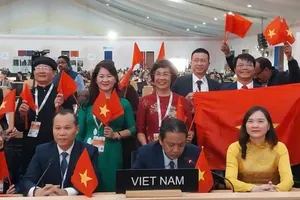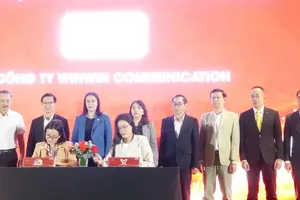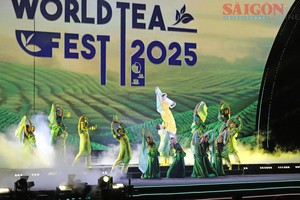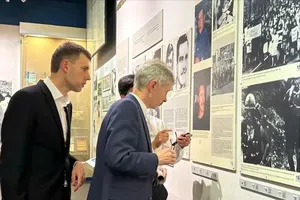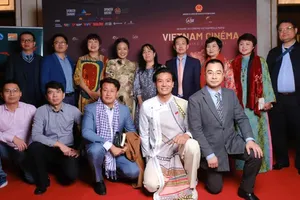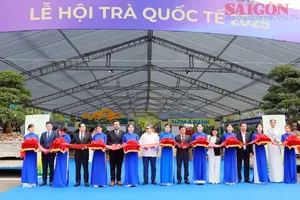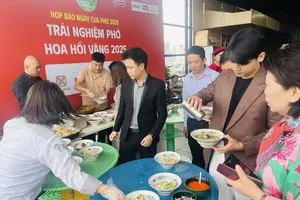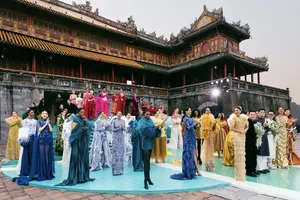On the occasion of the 29th National Telefilm Festival, a seminar on improving the quality of made-for-TV movies was held in Hanoi on January 7.
The seminar attracted many experts and communication company representatives who said that despite their popularity and the large amount of airtime they fill, the quality of Vietnamese telefilms needs to be improved.
During the most popular evening timeslots, TV movies in Vietnam take up 30 percent of the airtime as directed by the Government. But experts say a variety of impediments faced by local filmmakers, from funding to time and policies, has left much room for improvement.
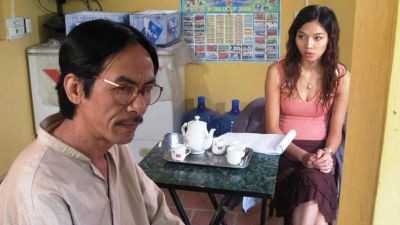
A scene from “Gio Lang Kinh” (Wind at the Kinh Village), a critically acclaimed political commentary telefilm. Experts at a recent forum said that a host of issues were hurting the quality of other made-for-TV movies in Vietnam. (Photo: Vnexpress.net)
According to People’s Artist Tran Phuong, political commentary films are one of the most popular telefilm genres and a highlight of the festival. However, there are simply not enough of them.
In addition, audiences recognize that much of the content in Vietnamese made-for-TV movies is not a true reflection of real life, said Phuong.
He cited the example of films portraying rich girls leading fast, exciting lives, rather than stories that focus on the struggles of youth to learn and grow.
Screenwriter Doan Minh Tuan, meanwhile, worried that many films shown at the festival were violent and sloppily made.
He said Vietnamese people are sweet and kind-hearted, but that these attributes are played up too heavily in both political commentary and entertainment films. Directors should take a more subtle approach in eliciting emotions from actors, Tuan said.
Vietnamese telefilms also suffer when sponsors pressure producers to make movies longer to fill time requirements. When filmmakers are constrained in this way, the development and quality of Vietnamese moviemaking is similarly limited, said Phuong.
He also disagreed with using foreign film scripts to produce movies in Vietnam. Using foreign scripts will crush the creative spirit of domestic filmmakers, Phuong said.
And because of stark differences in culture and language, using foreign scripts makes it difficult to adapt films for Vietnamese audiences, Phuong added.
However, film producer and Director of the BHD Company Ngo Bich Hanh felt it was acceptable to use foreign scripts in moderation as long domestic filmmakers did not come to rely on them too heavily.
Director Nguyen Huu Phan said Vietnamese filmmakers, however, currently lacked good scripts of their own, in addition to facing funding and time challenges.
The quality of films can be measured by the number of viewers who tune in to watch telefilms and the number of advertisers that a movie draws, he added.
Producer Hanh said it is necessary to encourage local filmmakers to produce a wide variety of different genres. By offering more funding for different types of movies, such as political commentaries and children’s films, Vietnam would enjoy a broader range of telefilms, said Hanh.
According to director Nguyen Huu Phan, the quality of movies also depends on the types of policies that exist for approving films to be made in the first place. Higher standards are thus needed, said Phan.
Audiences are hopeful that improvements to telefilm quality will come in the future thanks to more forums where experts and viewers alike can voice their opinions.








